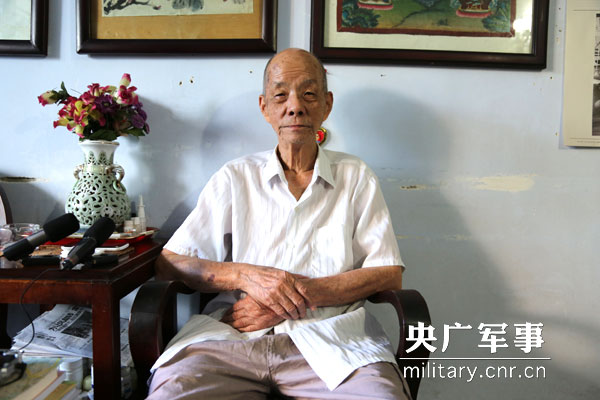The Paper's reporter Yue Huairang
According to the Changsha Anti-Japanese War Culture Research Association, Zhong Hua, a veteran soldier of the 114th Regiment of the New 38th Division of the New 1st Army of the Chinese Expeditionary Force, died at 00:50 on June 28, 2021 at the age of 94.
Before his death, Zhong Hua served as the president of the Chinese Expeditionary Force Friendship Association and made outstanding contributions to the service of the veterans of the Expeditionary Force.
In 2015, the Central Broadcasting Network published an article "Zhong Hua, a veteran of the Expeditionary Force: Tens of thousands of casualties of the Expeditionary Force, no one surrendered" Introduction: Zhong Hua, born in 1928 in Zigong City, Sichuan Province, joined the Expeditionary Force to fight in India and Burma in the spring of 1944, returned to Sichuan Province to study architecture after the surrender of the Japanese army in the winter of 1946, joined the "Kuomintang Revolution" in June 1949, retired in 1988, participated in the Battle of Menggong and Myitkyina in the Indo-Burma battlefield, and participated in the anti-Chiang Kai-shek student movement many times from 1947 to 1949. In 1949, the anti-Kuomintang troops in Western Sichuan were successfully revolted.

Zhong Hua Yangguang military map
In the spring of 1944, Zhong Hua signed up for the First Army of the Chinese Expeditionary Force. "Teachers and classmates, we were sent all the way to the airport, the plane flew from Chengdu to Kunming to refuel, directly to India's Jinjiang airport, India's Jinjiang airport is our training institution, at that time I was assigned to the 38th Division reserve, while being trained, while preparing for combat."
In the spring of 1944, the Allied counterattack on Burma was in full swing, Sun Liren's new first army attacked Meng Gong head-on, and the 38th Division repeatedly crossed the sky to surprise the Japanese army, before the arrival of the rainy season, to crush the Japanese army, eliminate the Japanese 18th Division, the 53rd Division, the 2nd Division, and the 56th Division, and annihilate 12,000 enemy troops.
"In the spring of 1944, the Indo-Burma battlefield began to counterattack Burma, wiping out the most vicious Japanese 18th Division in MengGong, they initially thought that the Chinese army could not do it, who knows, that battle was particularly brave, not only wiped out his army, but even seized his military flag in his hands, so later, the British royal and American presidents issued medals to us, and the whole world knew that China had a 38th Division, and the division commander was Sun Liren." Zhong Hua said.
The 38th Division that captured Meng Gong began to march towards Myitkyina, the Japanese army defending the city stubbornly resisted, and the battle to capture Myitkyina was extremely arduous, and when it was the rainy season in northern Burma, the Chinese army could only advance inch by inch. Sometimes the positions taken during the day were retaken by the Japanese army at night from the tunnels. Rains and floods turned the lowlands of Myitkyina into swamps, and the swamps turned into oceans. The city was repeatedly bombed, and all the buildings were left with only a one-meter-high ruined wall.
"The Japanese are cruel, they don't retreat, and he hides well, not only has a fortress, but also the most annoying in the tree, and there is no concentration in the tree, this is on this tree, that is on that tree, it is very difficult to annihilate him, it takes a long time, the leaves burn out before they see him." Zhong Hua said.
The expeditionary force that attacked Myitkyina, after suffering more than 10,000 casualties, finally captured Myitkyina and won a strategic turning victory for the entire Pacific and Far East theaters.
Zhong Hua said: "At least more than 10,000 people were sacrificed, which is not simple, we followed up later, the reserve team is not called the reserve team, directly on the first line, when I was marching into Myitkyina, the mines blew me up, one was on the foot, the whole flesh was broken, and there were things that the mines blew up, stones, metal things, and broke two of my ribs." At that time, we were well equipped, heavy machine guns, machine guns, and there was also the cover of aircraft, artillery, and chariots, but as soon as a platoon of people went up, two-thirds of them were still sacrificed, and the remaining one-third was still eating in a bunch in the morning, and they didn't say anything about lunch, because there were few people left. Before it was too late to bury, it was burned with fire, burned into ashes, ashes, there were no metal boxes at that time, wrapped up one by one with parachute cloth, and inserted signs, and our new first army had a cemetery, between Meng Gong and Myitkyina. ”
Editor-in-Charge: Jiang Chenrui